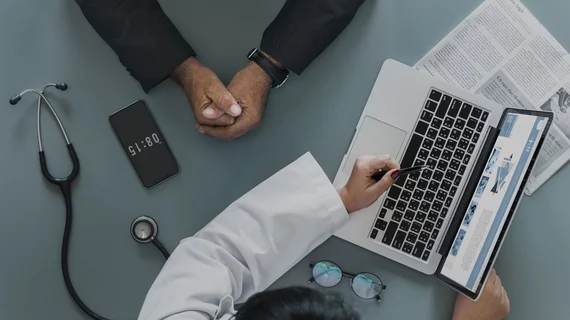Almost half of healthcare consumers ready to embrace medical AI
Some 46% of Americans are open to the idea of their physicians using AI to help make diagnoses, according to the latest survey of healthcare consumers annually commissioned by the insurance giant UnitedHealthcare.
The reasons most commonly cited by these early embracers are the technology’s potential to boost diagnostic accuracy (46%), cut the risk of human error (31%) and inform speedy treatment decisions (15%).
Meanwhile, participants who said they weren’t interested in medical AI––28% of respondents––based their nonacceptance on a preference for the expertise of a trained professional (47%) and a lack of trust in the technology (24%).
The survey was conducted by phone in August. Researchers spoke with a random sample of 1,008 adults who answered via cellphone or landline.
Other noteworthy findings from the same survey: Thirty-seven percent of patients have used the internet or mobile apps over the past year to compare the quality and cost of medical services. That’s a big jump from the 14% who said they’d done so in 2012.
“Technology continues to reshape nearly every aspect of life, including how people research and access healthcare,” Rebecca Madsen, chief consumer officer of UnitedHealthcare, comments in a news item posted by the company.
She says the survey results also highlight the need for new investments in tech-based resources “to help enhance the care experience and provide more effective, evidence-based clinical interventions.”
Click here to read the item and here for the complete survey results.

